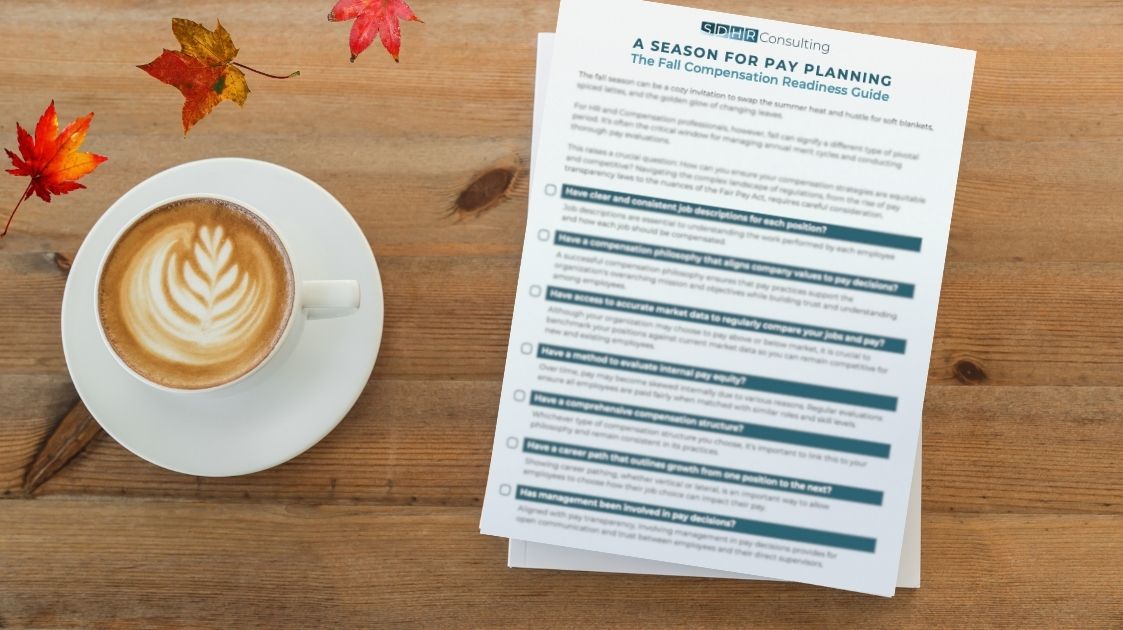October HR Update
The final day for the California Governor to sign or veto this year’s bills has passed, and we now know what employers need to be aware of in regard to employment-related legislation.
Even during the COVID challenges, the Legislature actively considered many bills this year. Employees need to be most concerned with the following:
COVID Exposure and Workers Compensation
SB 1159 is effective immediately and assumes certain employees who become ill due to COVID-19 after July 6th, 2020 are covered by workers compensation. Employers can rebut this claim using evidence of employer safety measures and employee’s risks outside their employment.
Employees who are covered by SB 1159 include frontline workers such as health care workers, firefighters, peace officers or those whose employers had an ‘outbreak’ in the workplace over the course of 14 days at a specific place of employment. An outbreak is defined as:
- Four COVID positive employees if the employer has more than five but fewer than 100 employees at the specific place of employment
- Four percent of employees who are positive if the employer has more than 100 employees at the specific place of employment.
- The public health department or OSHA orders the specific place of employment closed due to the risk of COVID infection.
In addition, all employers who know or who should have ‘reasonably’ known an employee tested positive for COVID-19 must notify their Worker’s Compensation Claims Administrator within 3 business days and provide information including the date the employee tested positive (collection date), the address of the employee’s specific place of employment and the highest number of employees who reported to work at the employee’s specific place of employment in the 45-day period preceding the last day the employee worked. The employer should be careful not to provide any personal identifiable information about the employee unless they are claiming a work-related infection.
Employers could be fined as much as $10,000 for intentionally submitting false or misleading information, or for failing to report the required information. Employers have until October 19th, 2020 to report any positive tests occurring between July 6th, 2020 and September 16th, 2020.
Update to AB 5 – Independent Contractors
AB 5 was a hot topic this year including in the Legislature where many bills were considered. One of these bills made it to the Governor’s desk and was signed by him in September.
The bill, AB 2257 is effective immediately and adds more exceptions to the AB 5 ABC Test. This includes exemptions for content contributors, narrators, illustrators, recording artists and certain occupations related to sound or musical compositions, photographers in certain situations, insurance underwriters and certain other insurance industry positions, real estate appraisers and home inspectors. All the occupations added by AB 2257 as exceptions are still subject to the Borello test which is a lesser standard than the ABC Test. However, the Borello test still has rules around how much control the employer has over the work of their independent contractors.
AB 2257 also attempts to clarify the AB 5 business-to-business exemptions and to allow for more flexibility in its application. AB 2257 clarifies a business service provider can provide services to the company’s customers as long as the business service provider also regularly contracts with other businesses. In addition, AB 2257 changes the requirement that a business service provider ‘actually’ contracts with other businesses to the requirement they ‘can’ contract with them.
Expanded California Family Leave Act (CFRA)
SB 1383 is effective January 1, 2021, and extends CFRA coverage to employers with 5 or more employees, counting their employees both inside and outside of California. As with current CFRA and FMLA, there is no geography requirement in SB 1383.
SB 1383 will expand the definition of family members for whom the employee can take CFRA leave, adds leave for military exigency and makes other changes all employers, even those who are currently covered by CFRA or the New Parent Leave Act will need to be aware of and update in their procedures and Employee Handbook.
For more detail on SB 1383, please see our CFRA Expansion Blog.
Notice of COVID-19 Exposure in the Workplace
AB 685 is effective January 1, 2021, and requires employers to provide employees with written notice when they may have been exposed to an employee with a positive COVID-19 diagnosis or one who has received an isolation order related to COVID issued by a public health official.
The employer must notify the employees who are at the same worksite within one business day of receiving the notice of the potential exposure. The law has 4 specific notice requirements required to be given to the employees.
Protected Time off for Crime Victims
AB 2992 is effective January 1, 2021, and amends the Labor Code to expand prohibitions on discrimination and retaliation for taking time off for victims of domestic violence, sexual assault or stalking to include other crimes or abuse that caused physical injury or mental injury due to a threat of physical injury. AB 2992 broadly defines a crime or public offense as a misdemeanor or a felony committed by a competent adult regardless of whether any person is arrested, prosecuted or convicted of committing the crime.
Human Resources and Supervisors – Mandated Reporters
AB 1963 is effective January 1, 2021, and expands the list of mandatory child abuse reporters to include human resource employees of a business with five or more employees that employs minors to report suspected child abuse and neglect. Any supervisor who has direct contact with and supervises minors in the workplace are also now considered mandatory child abuse reporters. AB 1963 requires those employers to provide mandated reporters with training on identification and reporting of child abuse and neglect.
Pay Data: Annual Reporting to the State
SB 973 requires private employers with 100 or more employees who are required to file the federal EEO-1 to submit a pay data report to the CA Department of Fair Employment and Housing (DFEH) by March 31st, 2021 and each year after that. The pay data report required by California contains similar data as is required by the federal EEO-1.
How SDHRC Can Help
SDHRC understands businesses want to do the right thing and protect their employees, but may not know where to start. We make it our priority to keep up with the ever-changing laws, regulations, and best practices as it relates to COVID -19. The onus is on you to ensure your employees are safe and protected as the majority of COVID cases are coming from the workplace. Let’s work together to make a plan to ensure you meet the demanding and multi-layered mandates that will be in effect for years to come.
Authors: Traci Hagan and Marsi Harris





